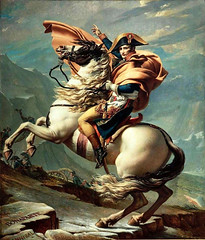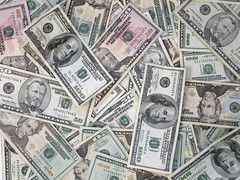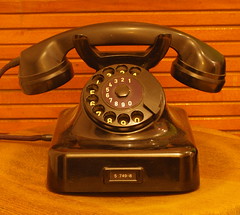| 3613784535 | Thomas Hobbes | Thomas Hobbes was an English philosopher during the era of enlightenment where in his book "Leviathan" he wrote about the idea of a Social Contract in which you would give part of your power to the government and in return were granted protection. Also, the leader or government was all powerful and nobody could overthrow it. |  | 0 |
| 3613786303 | John Locke | John Locke was an English philosopher and physician who believed in a version of the social contract in which if the people weren't happy with the government or it's leaders, they could simply overthrow it. He believed that humans learn from experience and we used this knowledge to better ourselves. |  | 1 |
| 3613788050 | Estates | The estates were the classes that the Old Regime split into. It was comprised of three classes. The first estate consisted of the Clergy, the second estate consisted of Nobility (The king was part of the second estate) and the third estate, which consisted of the Commoners, or peasants. The top two estates controlled the wealth while the their did all the work and had no money. |  | 2 |
| 3613788051 | Old Regime | The old regime was simply the name of the French political system before the revolution. This, as you know, contains the three Estates |  | 3 |
| 3613788914 | National Assembly | The national assembly consisted of delegates from the third estate in order to pretty much just have power in the political system. |  | 4 |
| 3613791917 | Legislative Assembly | The legislative assembly was the governing body that replaced the king. They created laws and approved/rejected declarations of war |  | 5 |
| 3613791918 | Estates General | A meeting comprised of representatives of all three estates with the purpose of approving the new tax King Louis XVI proposed. It was the first meeting of this type in 175 years. |  | 6 |
| 3613792509 | Louis XVI | King Louis XVI was the king of France between 1754 - 1793 and was a weak king who couldn't run a government. He spent a lot and put off national issues until he ha no money or couldn't procrastinate on it any longer. |  | 7 |
| 3613792510 | Marie Antoinette | She was an unpopular Queen who was a very, very extravagant spender and dismissed people unhappy with her and her actions. |  | 8 |
| 3613793346 | Maximilien Robespierre | He was a French lawyer and politician that set out to erase every trace of France's past. He and his supporters are firm believers in reason and made positive changes. He was also the leader of the Reign of Terror and is generally known as one of the most influential figures in the French Revolution |  | 9 |
| 3613793347 | Reign Of Terror | A period in the French Revolution in which Maximilien Robespierre ruled as the sole dictator of France. He ruled through terror, executed those who opposed his ideals and justified it by saying it helped people keep true to their ideals. |  | 10 |
| 3613794693 | Napoleon | Napoleon was a Military lieutenant turned supreme dictator of France who set out to forge an empire. (He joined the military at the age of 16) |  | 11 |
| 3613794694 | Napoleonic code | A comprehensive and uniform set of laws that eliminated many injustices in France, but oppressed people's freedom. Freedom of Speech and Freedom of the Press were both restricted under this new code |  | 12 |
| 3613795586 | Battle of Trafalgar | One of the most important battles Napoleon lost.It was a naval battle off the southwest coast of Spain but Napoleon lost securing Britain as having the most powerful navy for 100 years and that it made Napoleon give up trying to take over britain. |  | 13 |
| 3613795587 | Horatio Nelson | The British commander with excellent strategic naval skills which forced Napoleon to loose all fights at sea |  | 14 |
| 3613796326 | Rosetta Stone | A polished stone found by French soldiers.with the same message written in three different languages. Greek, Egyptian hieroglyphs and-- simpler egyptian hieroglyphs. |  | 15 |
| 3613796907 | Egyptian Campaign | A French campaign to egypt in order to protect French trade interests. Napoleon failed to do this though. |  | 16 |
| 3613796908 | Coup de etat | It translates to "Blow to the state" and it refers to Napoleon's sudden seizure of power where he rapidly became the popular leader of France |  | 17 |
| 3613797774 | Scorched Earth Policy | A Russian policy that required Russian citizens burn all grain and kill all livestock on sight in the event of an invasion so the enemy would have nothing to eat and would starve. |  | 18 |
| 3613797775 | Battle of Waterloo | A battle that took place after Napoleon gained power a second time. It took place in Belgium in a place called Waterloo. The combined forces of the British and Prussian army defeated Napoleon |  | 19 |
| 3613798725 | Duke of Wellington | A field marshal who led the British Army at the battle of Waterloo |  | 20 |
| 3613798870 | Congress Of Vienna | A series of meetings held in Vienna with the goal of establishing policies to bring peace in all of Europe after Napoleon's defeat. It was only scheduled to last four weeks, but instead it took eight months |  | 21 |
| 3613810450 | Industrial Revolution | The industrial revolution refers to a time of a greatly increased output of machine-made goods that began in England in the mid 1700's |  | 22 |
| 3613810451 | Textile Industry | An industry that dealt clothing and other cloth items. Things that were produced in this industry included string, clothes and fabric |  | 23 |
| 3613811147 | Cottage Industry | The industry of home made goods as opposed to factory made goods. Hence, 'Cottage' |  | 24 |
| 3613811148 | Industrialization | The process of developing machine production of goods. Certain natural resources are required for this. They include: Water power and coal to power the machines Iron ore to build the machines Rivers for inland transportation and Harbors for merchant ships to set sail |  | 25 |
| 3613811983 | Factory | Large buildings usually located near rivers which housed machines to produce a single good |  | 26 |
| 3613811984 | Corporation | A business owned by many stockholders who each aren't responsible for the company's debt |  | 27 |
| 3613812723 | Adam Smith | Adam smith was a professor, philosopher and an economist who believed in a free economy in which the government does not interfere. This was demonstrated in the book he wrote "The wealth of nations" |  | 28 |
| 3613812724 | Karl Marx | A German journalist who introduced the world to a radical type of socialism known as "Marxism" Those with wealth controlled the money and goods and everyone else did the work. Demonstrated in his pamphlet called "The communist manifesto" |  | 29 |
| 3613813639 | Capitalism | The idea that factors of production shall be privately owned and money is invested in business venues to make a profit. |  | 30 |
| 3613813640 | Communism | The idea that all factors of production must be shared. Each person works and is paid according to their abilities and needs |  | 31 |
| 3613815253 | Socialism | The idea that the factors of production are owned by the community as a whole and operate to benefit everyone within the community |  | 32 |
| 3613815254 | Labor Unions | A voluntary labor association comprised of workers who aim to protect their interests and improving wages, hours and working conditions |  | 33 |
| 3613817682 | Strike | Complete refusal to work as a form of protest. |  | 34 |
| 3613817683 | Collective Bargaining | Negotiations between workers and employers in order to improve conditions and wages. |  | 35 |
| 3613818426 | Jane Addams | An active reformer who protected women's rights and set up the first hull houses |  | 36 |
| 3613818427 | Thomas Edison | An American inventor and businessman most famous for inventions such as the Light bulb, motion picture, the phonograph and developed the first laboratory. |  | 37 |
| 3613819035 | Light Bulb | A glass bulb with filament and various gasses that lights up when electricity passes through. It was made practical by Thomas Edison. |  | 38 |
| 3613819036 | Samuel Morse | Invented and sent the first electrical signals over the telegraph. |  | 39 |
| 3613819908 | Telegraph | A system devised by Samuel Morse to send messages over long distances |  | 40 |
| 3613819909 | Alexander G. Bell | A scientist and inventor most famous for inventing and making practical, the telephone. |  | 41 |
| 3613823097 | Telephone | An invention by Alexander G. Bell that allowed for long distance communication. |  | 42 |
| 3613823098 | Boer War | A war in which britain tried to take over boer (Dutch settlers) territory. It was a war over resources. It didn't end successfully for the british |  | 43 |
| 3613823840 | Imperialism | The seizure of a country or territory by a stronger country. |  | 44 |
| 3613826270 | Racism | Belief that your race is superior to another |  | 45 |
| 3613826907 | Sepoy | An Indian soldier under British or European rule. |  | 46 |
| 3613826908 | Jewel in the Crown | It's what Europe considered all of India for all of it's potential resources and profit. They thought they could make so much money out of it they dubbed it the jewel in the crown |  | 47 |
| 3613827989 | Ram Mohun Roy | A well-educated Indian who believed Indian life needs to be changed. If it wasn't changed, India would continue to be controlled by outsiders. He pushed against child marriages, rigid caste and other practices he disliked |  | 48 |
Mid-Term Review (Pre AP World History) Flashcards
Primary tabs
Need Help?
We hope your visit has been a productive one. If you're having any problems, or would like to give some feedback, we'd love to hear from you.
For general help, questions, and suggestions, try our dedicated support forums.
If you need to contact the Course-Notes.Org web experience team, please use our contact form.
Need Notes?
While we strive to provide the most comprehensive notes for as many high school textbooks as possible, there are certainly going to be some that we miss. Drop us a note and let us know which textbooks you need. Be sure to include which edition of the textbook you are using! If we see enough demand, we'll do whatever we can to get those notes up on the site for you!

